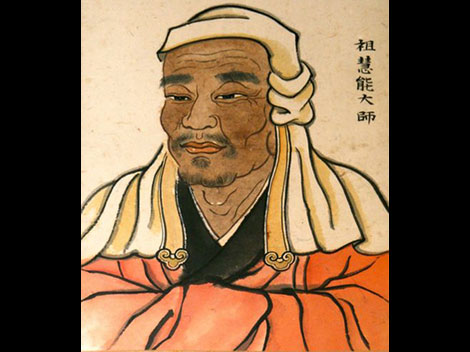Platform Sutra, (Chinese: Liu-Tsu t’an-ch’ing), important text from the Ch’an (Zen) school of Chinese Buddhism, most likely composed in the 8th century ce. The Platform Sutra According to Red Pine, whose translation of the Platform Sutra is the most popular among today’s Zen practitioners, this eight-century text “has been the most studied, the most quoted, the most influential of all the texts that teach that branch of Mahayana Buddhism known as Zen.”. The 'Platform Sutra' records the teachings of Hui-neng, the Sixth Patriarch, who is revered as one of the two great figures in the founding of Ch'an (Zen) Buddhism. This translation is the definitive English version of the eighth-century Ch'an classic. The platform sutra the zen teaching of hui-neng U.S. $16.95 Eastern Religion The Platform Sutra occupies a central place in Zen (Ch’an) Buddhist instruction for students and spiritual seekers worldwide. It is often linked with The Heart Sutra and The Diamond Sutra to form a trio of texts that have been revered and studied for centuries.
The Platform Sutra Red Pine
A Zen Buddhist masterpiece, winner of the 2018 Thornton Wilder Prize for Translation. The Platform Sutra occupies a central place in Zen (Ch’an) Buddhist instruction for students and spiritual seekers worldwide.

It is often linked with The Heart Sutra and The Diamond Sutra to form a trio of texts that have been revered and studied for centuries. However, unlike the other sutras, which transcribe the teachings of the Buddha himself, The Platform Sutra presents the autobiography of Hui–neng, the controversial 6th Patriarch of Zen, and his understanding of the fundamentals of a spiritual and practical life. Hui–neng’s instruction still matters—the 7th–century school of Sudden Awakening that he founded survives today, continuing to influence the Rinzai and Soto schools of contemporary Zen.


The Platform Sutra

The Platform Sutra Of The Sixth Patriarch

The Platform Sutra Red Pine Pdf
Red Pine, whose translations of The Heart Sutra and The Diamond Sutra have been celebrated and widely received, now provides a sensitive and assured treatment of the third and final sutra of the classic triumvirate. He adds remarkable commentary to a translation that, combined with the full Chinese text, a glossary, and notes, results in a Mahayana masterpiece sure to become the standard edition for students and seekers alike.
